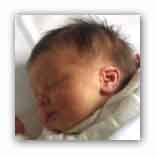|
A systematic literature review was conducted by a
nonvoting, independent review team to conduct a
scientifically rigorous update to the National Sleep
Foundationís sleep duration recommendations.
The National Sleep Foundationís (NSFís) mission is
to improve health and well-being through sleep
health education and advocacy. Notably, the NSF
provides the public with the most up-to-date,
scientifically rigorous sleep health recommendations.

The review was led by John Herman, PhD, from the
University of Texas Southwestern Medical Center at
Dallas, with assistance from colleagues Chelsea
Vaughn, PhD, and David Brown, PhD.
The National Sleep Foundation convened an 18-member
multidisciplinary expert panel, representing 12
stakeholder organizations, to evaluate scientific
literature concerning sleep duration recommendations.
The panel agreed to the following age categories:
- Newborn: 0-3 months
- Infant: 4-11 months
- Toddler: 1-2 years
- Preschooler: 3-5 years
- School-age: 6-13 years
- Teenager: 14-17 years
- Young adult: 18-25 years
- Adult: 26-64 years
- Older adult: ≥65 years
The panel agreed that, for healthy individuals with
normal sleep, the appropriate sleep duration
for:
- newborns is between 14 and 17 hours,
- infants between 12 and 15 hours,
- toddlers between 11 and 14 hours,
- preschoolers between 10 and 13 hours, and
- school-aged children between 9 and 11 hours.
- teenagers 8 to 10 hours was considered
appropriate,
- young adults and adults 7 to 9 hours,
- older adults 7 to 8 hours.
Sufficient sleep duration requirements vary across
the lifespan and from person to person. The
recommendations reported here represent guidelines
for healthy individuals and those not suffering from
a sleep disorder.
Sleep durations outside the recommended range may be
appropriate, but deviating far from the normal range
is rare. Individuals who habitually sleep outside
the normal range may be exhibiting signs or symptoms
of serious health problems or, if done volitionally,
may be compromising their health and well-being.
For more information
National Sleep Foundationís sleep time duration
recommendations: methodology and results summary
MDN |